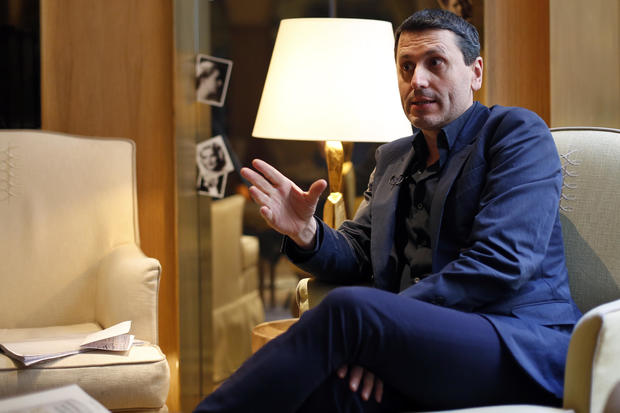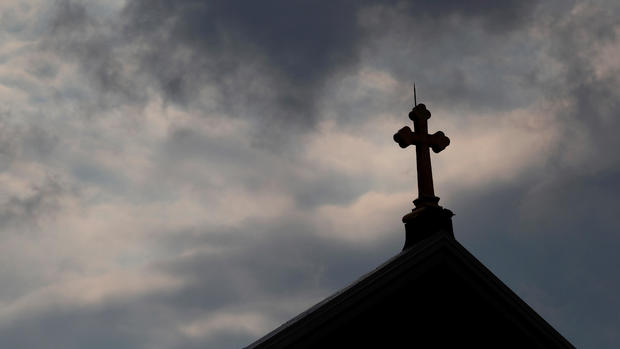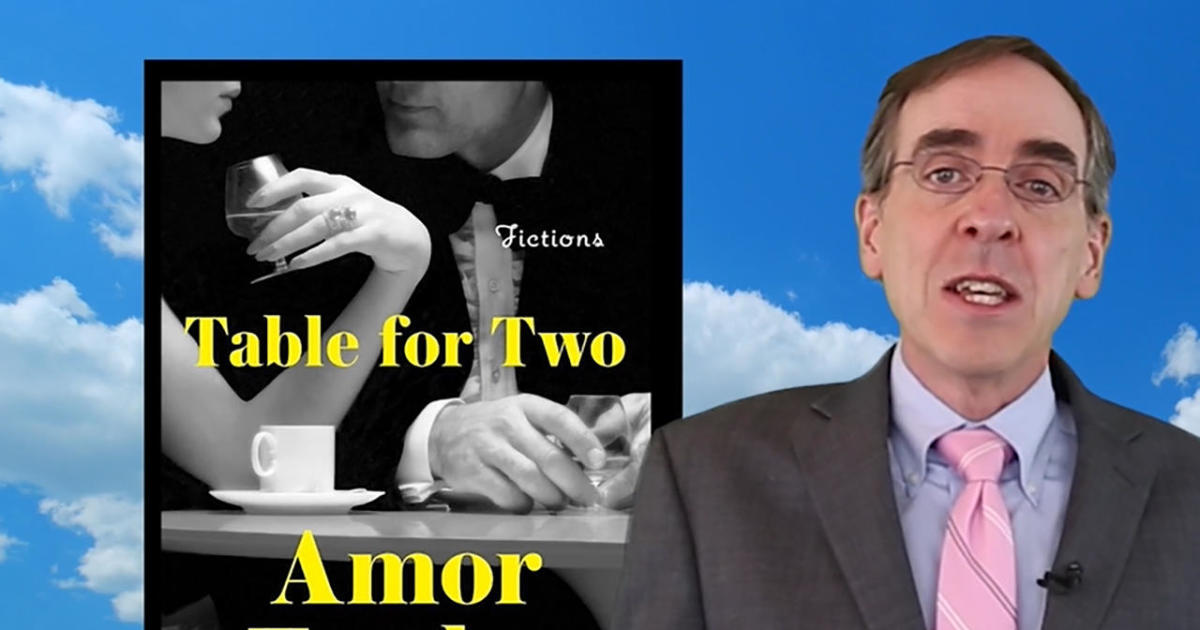Bombshell book alleges rampant homosexuality, hypocrisy within Vatican
A gay French writer has lifted the lid on what he calls one of the world's largest gay communities, the Vatican, estimating that most of its prelates are homosexually inclined and attributing much of the current crisis in the Catholic Church to an internal struggle.
In the explosive book, "In the Closet of the Vatican," author Frederic Martel describes a gay subculture at the Vatican and calls out the hypocrisy of Catholic bishops and cardinals who in public denounce homosexuality but in private lead double lives.
Aside from the subject matter, the book is astonishing for the access Martel had to the inner sanctum of the Holy See. Martel writes that he spent four years researching it in 30 countries, including weeks at a time living inside the Vatican walls. He says the doors were opened by a key Vatican gatekeeper and friend of Pope Francis who was the subject of the pontiff's famous remark about gay priests, "Who am I to judge?"
In an interview Friday in a Paris hotel, Martel said he didn't tell his subjects he was writing about homosexuality in the Vatican. But he said it should have been obvious to them since he is a gay man who was researching the inner world of the Vatican and has written about homosexuality before. He said it was easier for him, as a gay foreigner, to gain the trust of those inside the Vatican than it would have been for an Italian journalist or Vatican expert.
"If you're heterosexual it's even harder. You don't have the codes," he told The Associated Press. "If you're a woman, even more so."
Martel says he conducted nearly 1,500 in-person interviews with 41 cardinals, 52 bishops or monsignors, and 45 Vatican and foreign ambassadors, many of whom are quoted at length and in on-the-record interviews that he says were recorded. Martel said he was assisted by 80 researchers, translators, fixers and local journalists, as well as a team of 15 lawyers. The 555-page book is being published simultaneously in eight languages in 20 countries, many bearing the title "Sodom."
The Vatican didn't immediately respond to a request for comment.
Martel appears to want to bolster Francis' efforts at reforming the Vatican by discrediting his biggest critics and removing the secrecy and scandal that surrounds homosexuality in the church. Church doctrine holds that gays are to be treated with respect and dignity, but that homosexual acts are "intrinsically disordered."
"Francis knows that he has to move on the church's stance, and that he will only be able to do this at the cost of a ruthless battle against all those who use sexual morality and homophobia to conceal their own hypocrisies and double lives," Martel writes.
But the book's Feb. 21 publication date coincides with the start of Francis' summit of church leaders on preventing the sexual abuse of minors, a crisis that is undermining his papacy. The book isn't about abuse, but the timing of its release could fuel the narrative, embraced by conservatives and rejected by the gay community, that the abuse scandal has been caused by homosexuals in the priesthood.
Martel is quick to separate the two issues. But he echoes the analysis of the late abuse researcher and psychotherapist A.W. Richard Sipe that the hidden sex lives of priests has created a culture of secrecy that allowed the abuse of minors to flourish. According to that argument, since many prelates in positions of authority have their own hidden sexual skeletons, they have no interest in denouncing the criminal pedophiles in their midst lest their own secrets be revealed.
"It's a problem that it's coming out at the same time (as the summit)," Martel acknowledged in the AP interview, adding that the book was finished last year but its release was delayed for translation. "But at the same time it's, alas, the key to the problem. It's both not the subject, and the subject."
The Rev. James Martin, a Jesuit priest and author of "Building a Bridge" about how the Catholic Church should reach out more to the LGBT community, said that based on the excerpts he had read, Martel's book "makes a convincing case that in the Vatican many priests bishops and even cardinals are gay, and that some of them are sexually active."
But Martin added that the book's sarcastic tone belies its fatal flaw. "His extensive research is buried under so much gossip and innuendo that it makes it difficult to distinguish between fact and fiction."
"There are many gay priests, bishops and cardinals in ministry today in the church," Martin said. "But most of them are, like their straight counterparts, remaining faithful to a life of chastity and celibacy."
In the course of his research, Martel said he came to several conclusions about the reality of the Holy See that he calls the "rules," chief among them that the more obviously gay the priest, bishop or cardinal, the more vehement his anti-gay rhetoric.
Martel says his aim is not to "out" living prelates, though he makes some strong insinuations about those who are "in the parish," a euphemism he learns is code for gay clergy.
Martin said Martel "traffics in some of the worst gay stereotypes" by using sarcastic and derogatory terms, such as when he writes of Francis' plight: "Francis is said to be 'among the wolves.' It's not quite true: he's among the queens."
Martel moves from one scandal to another — from the current one over ex-Cardinal Theodore McCarrick of Washington to the priest-friendly gay migrant prostitute scene near Rome's train station. He traces the reasons behind Pope Benedict XVI's resignation, and devotes a whole chapter to the cover-up of the Mexican founder of the Legion of Christ, the pedophile Rev. Marcial Maciel. In each, Martel parses the scandal through the lens of the gay-friendly or homophobic prelates he says were involved.
Equal parts investigative journalism and salacious gossip, Martel paints a picture of an institution almost at war with itself, rife with rumor and with leaders struggling to rationalize their own sexual appetites and orientations with official church teachings that require chastity and its unofficial tradition of hostility toward gays.
"Never, perhaps, have the appearances of an institution been so deceptive," Martel writes. "Equally deceptive are the pronouncements about celibacy and the vows of chastity that conceal a completely different reality."
Martel is not a household name in France, but is known in the French LGBT community as an advocate for gay rights. Those familiar with his work view it as rigorous, notably his 90-minute weekly show on public radio station France Culture called "Soft Power." Recent episodes include investigations into global digital investment and the U.S.-China trade war.
As a French government adviser in the 1990s, he played a prominent role in legislation allowing civil unions, which not only allowed gay couples to formalize their relationships and share assets, but also proved hugely popular among heterosexual French couples increasingly skeptical of marriage.
His nonfiction books include a treatise on homosexuality in France over the past 50 years called "The Pink and the Black" (a sendup of Stendhal's classic "The Red and the Black"), as well as an investigation of the internet industry and a study of culture in the United States.
Martel attributes the high percentage of gays in the clergy to the fact that up until the homosexual liberation of the 1970s, gay Catholic men had few options. "So these pariahs became initiates and made a strength of a weakness," he writes. That analysis helps explain the dramatic fall in vocations in recent decades, as gay Catholic men now have other options, not least to live their lives openly, even in marriage.
Martel said no special interests financed the book, other than his advance from the publisher.





